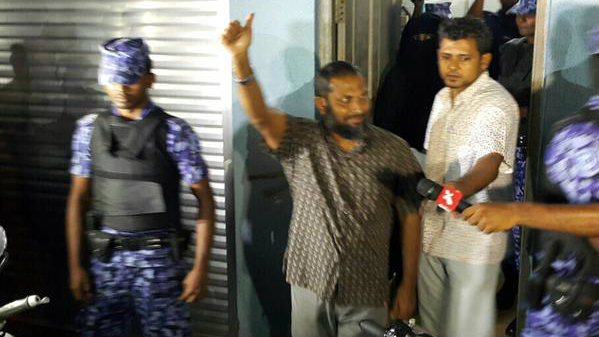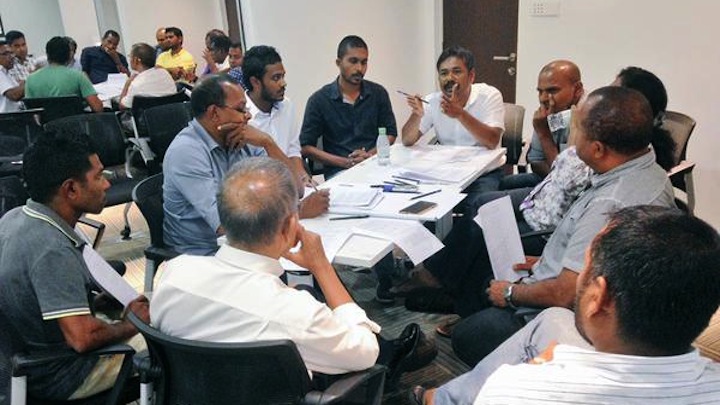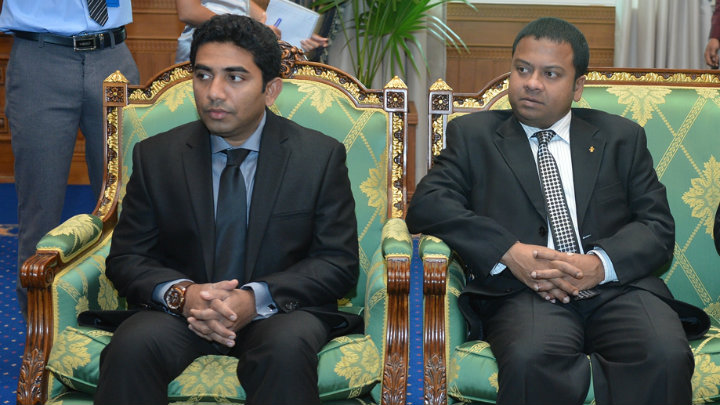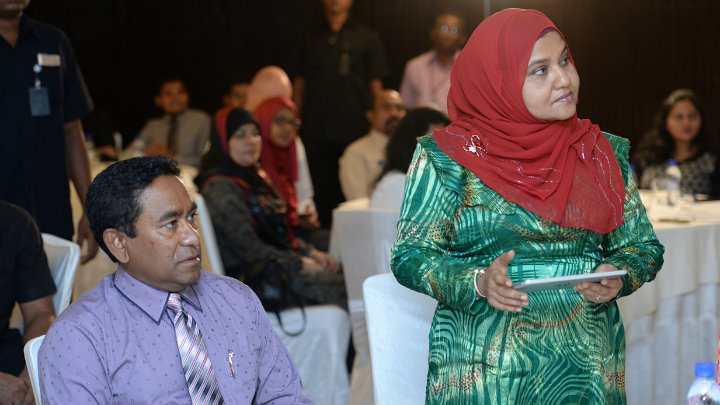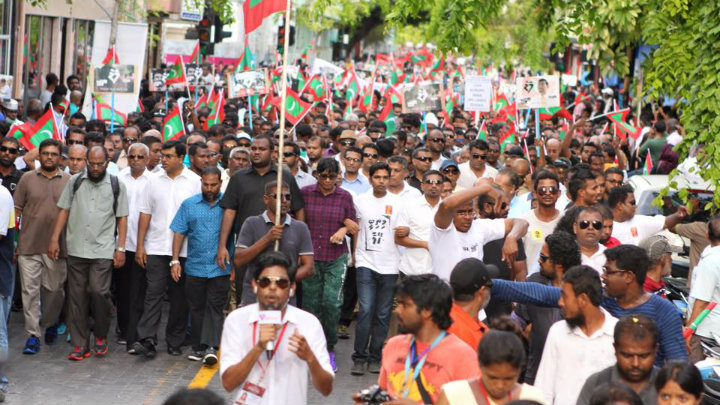The criminal court has ruled tonight to keep the president of the Adhaalath Party, Sheikh Imran Abdulla, in police custody until a verdict is issued in a terrorism trial.
Sheikh Imran is charged under the 1990 Anti-Terrorism Act with threatening to harm police officers and inciting violence at a historic antigovernment protest on May 1.
Imran has denied charges at the case’s first hearing tonight.
The Prosecutor General has also filed the same charges against Jumhooree Party’s deputy leader Ameen Ibrahim and council member Sobah Rasheed. Hearings were scheduled for Ameen at 8:30pm and Sobah at 9:00pm tonight, but cancelled as the pair are out of the country.
Imran is represented by lawyers Ali Zahir and former Attorney General Husnu Suood.
Citing a secret police intelligence report, state prosecutors claimed Imran was a threat to society and requested the three-judge panel detain Imran until the end of his trial.
Defence lawyers asked for five days to answer charges and requested Imran be kept under house arrest, noting the high court had last week overturned a May 17 criminal court order and transferred Imran from police custody to house arrest because of his diabetes.
Judges Abdul Bari Yoosuf, Abdulla Didi and Sujau Usman rejected the request.
They adjourned the hearing after saying Imran will be allowed time to answer charges, but did not specify the date for the next hearing.
Imran was kept in cuffs throughout the hearing.
He was arrested last night from his home on a criminal court warrant.
The same three-judge panel overseeing Imran’s trial had sentenced ex-president Mohamed Nasheed to 13 years in jail on terrorism charges, relating to the arrest of a judge during his tenure.
Foreign governments and international bodies, including the UN and Amnesty International, have criticized the trial for apparent lack of due process.
Nasheed was not given adequate time to prepare defence, denied the opportunity to call defence witnesses and at times denied the opportunity to seek legal counsel, observers have noted.
The three judges had also sentenced ex-defence minister Mohamed Nazim to 11 years in jail on weapons smuggling charges.
Nasheed’s Maldivian Democratic Party (MDP) and the Adhaalath Party had allied after the ex-president and the ex-defence minister’s arrest. Imran had been at the forefront of the ‘Maldivians against tyranny’ campaign.
The May Day rally – the largest protest in Maldivian history – was the second mass protest staged by the opposition calling for Nasheed and Nazim’s release.
Nearly 200 people were arrested from the May Day demonstration following a police crackdown after protesters attempted to enter the restricted Republic Square at dusk.
Imran was arrested at 11:00pm on May 1 and held in police custody for 26 days.
The criminal court authorized his release shortly after the high court ordered police to transfer Imran to house arrest.
“I have never encouraged anyone to create unrest, fear, harm anyone, at any time,” he said on his release.
Photo from social media
